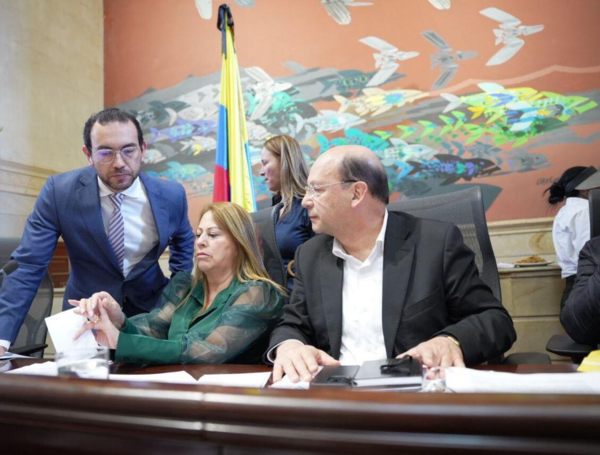The Colombian Congress approved the budget presented by Gustavo Petro's administration for 2026, the president's last term and the one his successor will receive. Unlike last year, when the bill was not approved and had to be issued by decree for the first time in history, this time things moved smoothly in the National Capitol.
The Senate plenary session accepted the proposal to approve the same text approved Wednesday night by the House of Representatives.
Thus, Colombia's budget will be $546.9 billion pesos, $10 billion less than the government initially proposed, and therefore requires tax reform to fully finance $16 billion.
The final vote was 50 in favor and 27 against. At the close of the plenary session, Finance Minister Germán Ávila celebrated the approval and stated that"this progress reflects the government's commitment to responsible fiscal management focused on well-being."
Now the discussion will focus on the tax reform the government needs to cover a 16 trillion peso shortfall.
The debate
Senator Aída Avella, of the Historic Pact party and the sponsor of the bill, explained that the $10 billion reduction compared to the initial text is due to an"exercise of responsible austerity," focused on protecting social spending.
"The budget was structured with fiscal responsibility criteria, without affecting essential sectors such as education, health, pensions, and transfers from the General Participation System," Avella said.
According to the congresswoman, the main cuts were made in non-essential operating expenses and non-constitutional transfers, with the aim of guaranteeing investment in the territories.
"This budget was designed with all the country's territories in mind, from La Guajira to the Amazon, from Arauca to Chocó, guaranteeing social investment as the central axis of development," he added.
During the debate, the opposition group expressed concerns about the distribution and clarity of regional spending. Senator Carlos Fernando Motoa, of Cambio Radical, questioned the fact that Congress approved a budget without knowing the details of the allocation for the departments.
"It's irresponsible for the regions to approve the budget without knowing what each territory is allocated. Today, we don't know how those resources will be invested," Motoa said.
Other opposition legislators insisted that the plan should prioritize regional infrastructure, security, and agricultural development, warning that the current approach does not guarantee territorial equity.

The 2026 budget represents a 7 percent increase compared to the current year's budget, which is set at 511 billion pesos.
The sectors that will benefit the most will be education, with an increase of $6.6 billion (8.1%), reaching a total of $88.2 billion, and health, which will have an additional $11 billion (16.4%), for a total of $78.1 billion.
In addition, a 5% cut to the Ombudsman's Office budget was approved.
With this approved amount, the government needs to raise an additional 16.3 trillion pesos, which must be obtained through the new tax reform that the government introduced a few months ago, but which has not yet been discussed in the legislature.
With this approval in Congress, the budget can be approved by President Petro.

